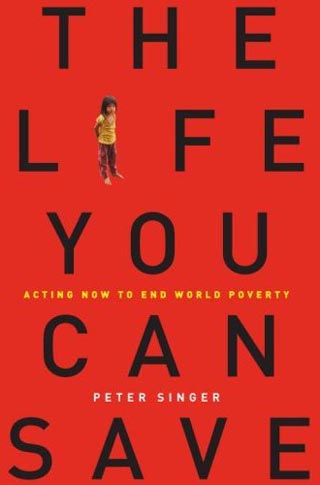Philosopher Peter Singer Wants You to Give Away Your Money
by John Stoehr

Here Comes The Gadfly
Say you’re walking your dog in the park one day and all of a sudden, you find a little girl drowning in a water fountain.
Do you help?
Most people say yes, that’s the right thing to do.
If so, the same premise applies to helping solve global poverty, says philosopher Peter Singer. That in one case, the person being helped is right in front of you and in the other, the person being helped is on the other side of the globe is irrelevant to the ethical principles that apply to both.
“If we make this judgment, then there’s no good reason not to help,” Singer says.
Singer is a professor of bioethics at Princeton University and the author of The Life You Can Save: Acting Now to End World Poverty. His has been a career of gadfly-like proportions, always raising questions we’d rather not think about.
His most famous book is 1975’s Animal Liberation in which he laid about the philosophical foundation for the modern-day animal right’s moment. Put another way, without Singer’s moral arguments against “speciesism,” People for the Ethical Treatment of Animals (PETA) would look more like circus carnies than activists.
The Life You Can Save hasn’t been as controversial as Animal Liberation, but the moral thinking is the same — there is an ethical way to live your life and there’s an unethical way. The choice is clear (to Singer, anyway), and the rest is up to you.
“If we can, without sacrificing anything of moral significance, do something that has major moral significance, like saving a child, restoring someone’s sight or relieving suffering, then I think we ought to do that,” Singer says.
How? By giving away your money.
Not all of it. Or even most of it.
Just a reasonable percentage of it.
With so much conspicuous affluence in the world, especially in the U.S., there’s no good reason, Singer argues, for so much poverty to exist. He donates a quarter of his income to charities like OxFam International and GiveWell.net. He provides a list of reliable charities in his book.
Singer is unswerving in his view.
How about the problem of structure? Money donated often ends up paying for a charity’s overhead rather than alleviating poverty.
“Do some research to find out what works,” Singer says. “People are liable to use that as an excuse. But it’s not an excuse.”
How about the idea that what’s mine is mine?
“No, that’s not an excuse either.”
Yes, and it’s a uniquely American idea.
Even so, he says.
“Americans don’t like idea that they aren’t doing everything they should to help the neediest. They like to think of themselves as generous, but Americans don’t give as much as they think they do. Most wealthy Americans spend money on frivolous things like yachts that could have been used to saved a life or two. That’s what you ought to do.”
Like I said, a gadfly.
And one who has a point.
blog comments powered by Disqus|
Issue Navigation> Issue Index > v9n2 (week of Thursday, January 14th) > Literary Buffalo > Philosopher Peter Singer Wants You to Give Away Your Money This Week's Issue • Artvoice Daily • Artvoice TV • Events Calendar • Classifieds |









 Current Issue
Current Issue